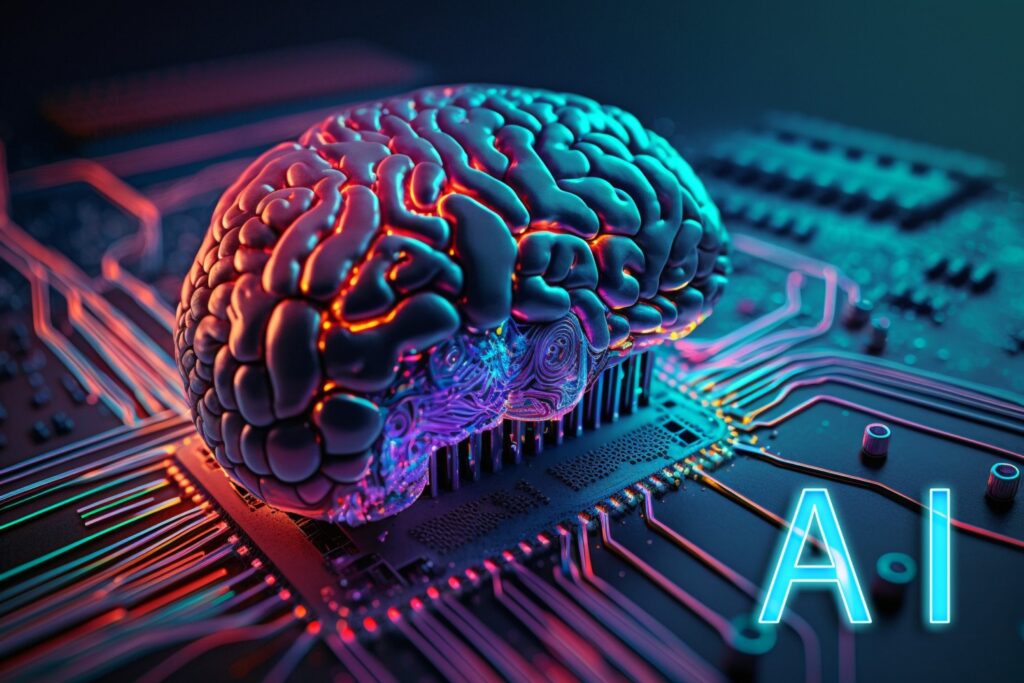In today’s rapidly evolving technological landscape, one term dominates conversations and headlines alike: Artificial Intelligence (AI). From revolutionizing industries to enhancing everyday experiences, AI has emerged as a transformative force reshaping the way we live, work, and interact. But what exactly is Artificial Intelligence, and how does it influence our lives? Join us on a journey as we delve deep into the realm of AI, exploring its definition, applications, and implications for the future.
Artificial Intelligence: Defining the Future
Artificial Intelligence, often abbreviated as AI, refers to the simulation of human intelligence in machines programmed to think and learn like humans. At its core, AI aims to mimic cognitive functions such as learning, problem-solving, and decision-making, enabling machines to perform tasks that typically require human intelligence. This transformative technology encompasses a wide range of applications, from virtual assistants and autonomous vehicles to predictive analytics and medical diagnosis.
The Evolution of Artificial Intelligence
The concept of Artificial Intelligence traces its roots back to ancient civilizations, where myths and folklore depicted humanoid automatons imbued with human-like capabilities. However, it wasn’t until the mid-20th century that AI emerged as a distinct field of study, propelled by groundbreaking research and technological advancements. Pioneering scientists and visionaries such as Alan Turing, John McCarthy, and Marvin Minsky laid the foundation for AI, paving the way for its exponential growth and evolution.
The Impact of Artificial Intelligence
AI’s impact spans across various sectors, driving innovation, efficiency, and productivity in unprecedented ways. In healthcare, AI-powered systems aid in disease diagnosis, drug discovery, and personalized treatment plans, leading to improved patient outcomes and healthcare delivery. Similarly, in finance, AI algorithms analyze vast datasets to detect fraudulent activities, optimize investment strategies, and automate routine tasks, revolutionizing the banking and finance industry.
Applications of Artificial Intelligence
The versatility of AI enables its application in diverse domains, ranging from business and finance to healthcare and entertainment. Virtual assistants like Siri and Alexa leverage natural language processing and machine learning algorithms to understand and respond to user queries, simplifying tasks and enhancing user experiences. In manufacturing, AI-driven robotics streamline production processes, optimize supply chain management, and ensure quality control, driving operational efficiency and cost savings.
Ethical Considerations in Artificial Intelligence
As AI continues to permeate various aspects of society, ethical considerations surrounding its development and deployment become increasingly paramount. Issues such as data privacy, algorithmic bias, and job displacement warrant careful scrutiny and regulation to ensure AI technologies benefit society while minimizing potential risks and unintended consequences. Moreover, fostering inclusivity and diversity in AI research and development is essential to mitigate biases and promote fairness and equity.
The Future of Artificial Intelligence
Looking ahead, the future of AI holds boundless possibilities and opportunities for innovation and growth. Advancements in deep learning, neural networks, and quantum computing are poised to propel AI to new heights, unlocking solutions to complex challenges and driving sustainable development across industries. However, navigating the ethical, social, and economic implications of AI’s proliferation requires collective effort, collaboration, and responsible stewardship to harness its full potential for the betterment of humanity.
Conclusion
Artificial Intelligence stands at the forefront of technological innovation, reshaping industries, economies, and societies worldwide. From healthcare and finance to transportation and entertainment, AI’s transformative potential knows no bounds, offering solutions to some of humanity’s most pressing challenges. However, realizing the full benefits of AI requires a concerted effort to address ethical, social, and economic considerations, ensuring AI technologies serve the common good and advance human flourishing in the digital age. As we embark on this journey of exploration and discovery, let us embrace the promise of Artificial Intelligence while remaining vigilant stewards of its responsible and ethical use for the betterment of humanity.

